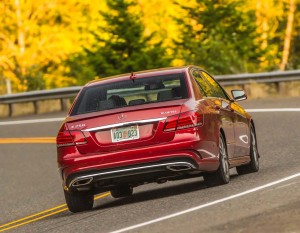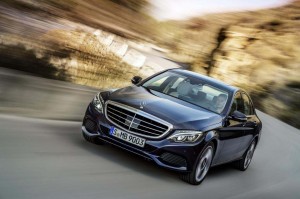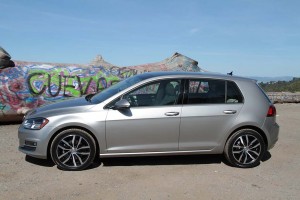Just a day after Mercedes-Benz announced a new generation of “clean” diesel engines, the German maker has been hit with a class action lawsuit claiming it cheated on emissions rules with its older diesels.
The suit’s allegations echo claims against Volkswagen, another German maker that has acknowledged using a so-called “defeat device” to rig 11 million vehicles sold in the U.S. using a 2.0-liter turbodiesel, including 482,000 sold in the U.S.
The suit, filed Thursday in the U.S. District Court for the Northern District of Illinois cites tests done for the Dutch government indicating that, in real-world conditions, Mercedes’ BlueTec diesel vehicles produced “dangerous levels” of smog-causing nitrogen oxides, according to a statement by Seattle law firm Hagens Berman.
In cold weather conditions, under 50 degrees Fahrenheit, the suit argues, those diesels produce up to 65 times more NOx than is permitted by the EPA, despite Mercedes marketing the engines as “the world’s cleanest and most advanced diesel.” On average, the complaint staes, NOx emissions are 19 times higher than the U.S. standard.
“Mercedes labeled its BlueTEC vehicles as ‘earth friendly,’ selling consumers the false notion that these diesel cars were less harmful to the environment, but Mercedes never divulged to consumers that BlueTEC diesels pollute at illegal levels when driven at lower temperatures and that its ‘champion of the environment’ mantra was a sham,” said Steve Berman, managing partner of Hagens Berman, in a statement.
For its part, Mercedes spokesperson Andrea Berg told TheDetroitBureau.com, “We believe the complaint is without merit. Currently, we are reviewing the documents and we will defend ourselves.”
(VW planning to give “generous compensation” to diesel owners, says victims’ fund manager. Click Here for the latest.)
Hagens Berman is also actively participating in the legal actions facing Volkswagen. More than 450 lawsuits recently were consolidated by an inter-judicial panel and will be heard before a federal court in San Francisco.
In the Volkswagen case, the U.S. Environmental Protection Agency confirmed the results of independent studies which found that the maker intentionally programmed the engine control software in vehicles like the Golf TDI to recognize when they were undergoing emissions testing. In such a situation, the vehicles’ sharply reduce NOx emissions compared to what would happen while operating on the road in order to meet U.S. standards.
A spokeswoman for the EPA replied by e-mail that the agency’s “testing of previously certified light duty diesel vehicles is ongoing,” adding that the EPA “does not comment on private lawsuits.”
(New documents suggest former VW CEO knew about diesel cheating. Click Here for the latest.)
Unlike the lawsuits filed against Volkswagen, which cited U.S. government tests, among other evidence, a spokesperson for law firm Hagens Berman indicated the lawsuit against Mercedes is based on testing done for the Dutch Ministry of Infrastructure, not for the EPA or, for that matter, specifically for testing compliance with U.S. law.
That raises questions about the merits of the case. European emissions law is based on laboratory test results, not real world driving conditions. Numerous studies have found that diesel vehicles routinely produce higher emissions levels on the road, though that is not technically a violation of the law.
It is also unclear if the vehicles tested for the Dutch ministry represent the emissions performance of Mercedes products sold in the States. Because the U.S. has the world’s toughest diesel emissions standards, makers often employ more rigorous emissions control systems on vehicles sold here.
American tests are also based on specific test standards conducted in carefully controlled environments, and it could be possible to program a vehicle to meet the U.S. mandates under such conditions but produce more NOx in the real world when, say, temperatures are lower. If such were the case with Mercedes-Benz, that could not only make it a target for a class action lawsuit but also for penalties levied by federal regulators.
The U.S. Justice Department earlier this year filed a civil lawsuit on behalf of the EPA that could result in billions of dollars in fines against Volkswagen. The agency is also moving ahead with a criminal investigation.
(Takata airbag recall could soon grow by as many as 50 million vehicles. Click Here for more.)



